



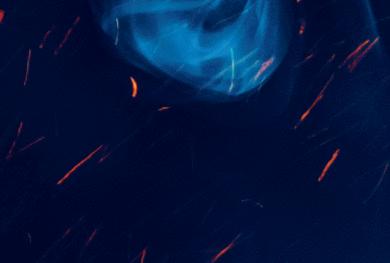
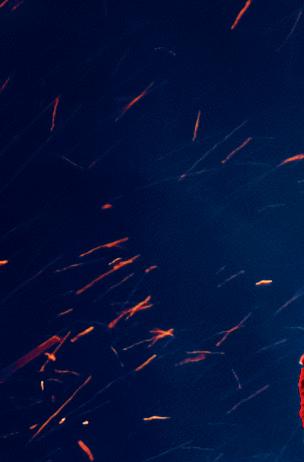
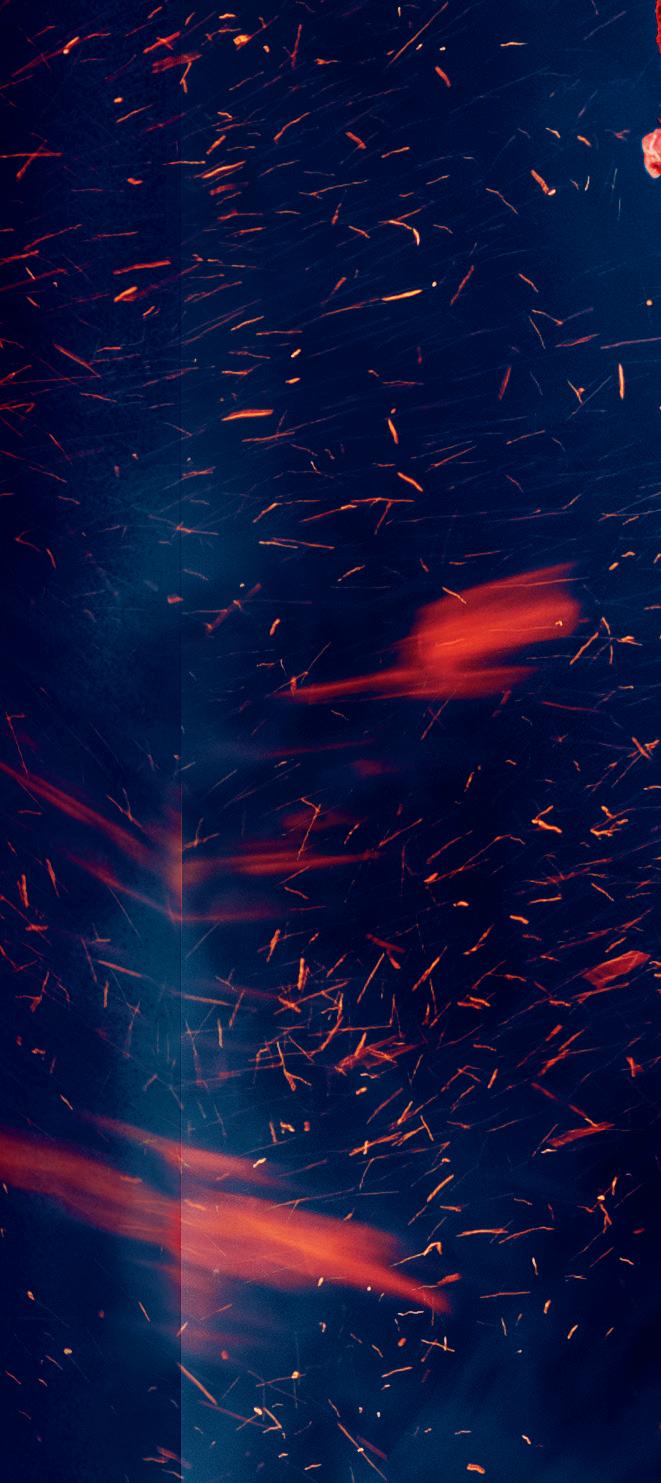
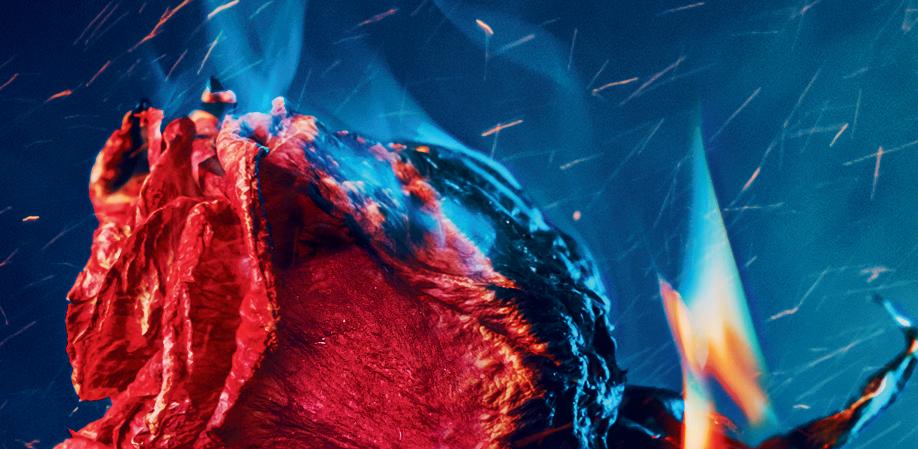
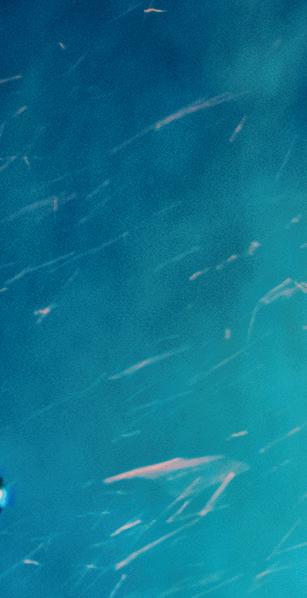





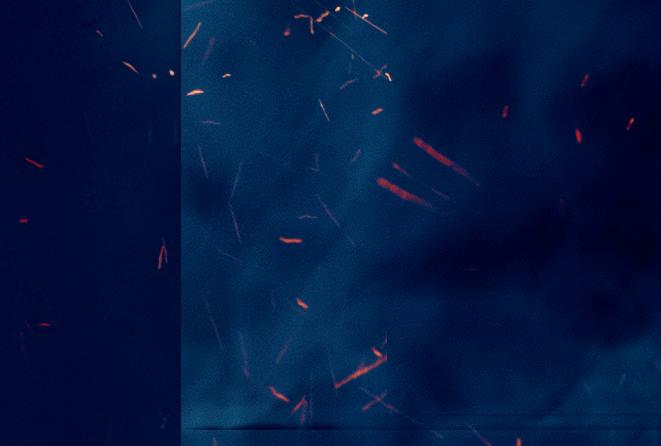

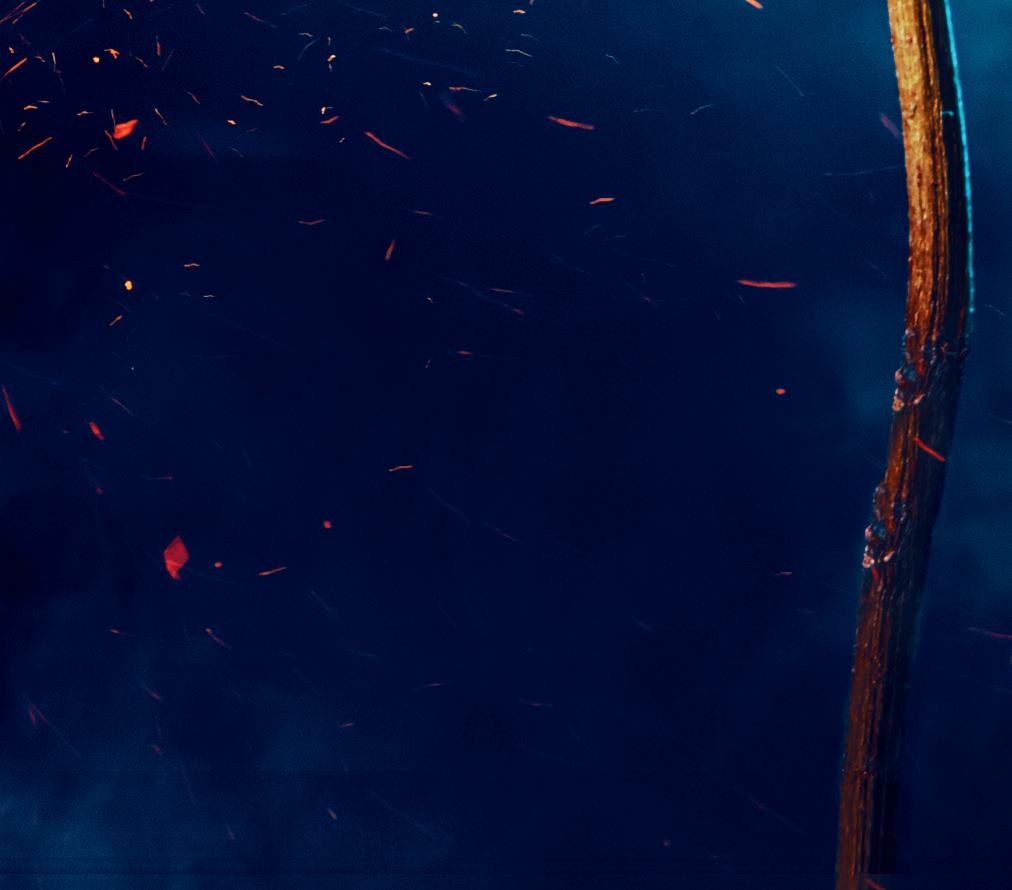
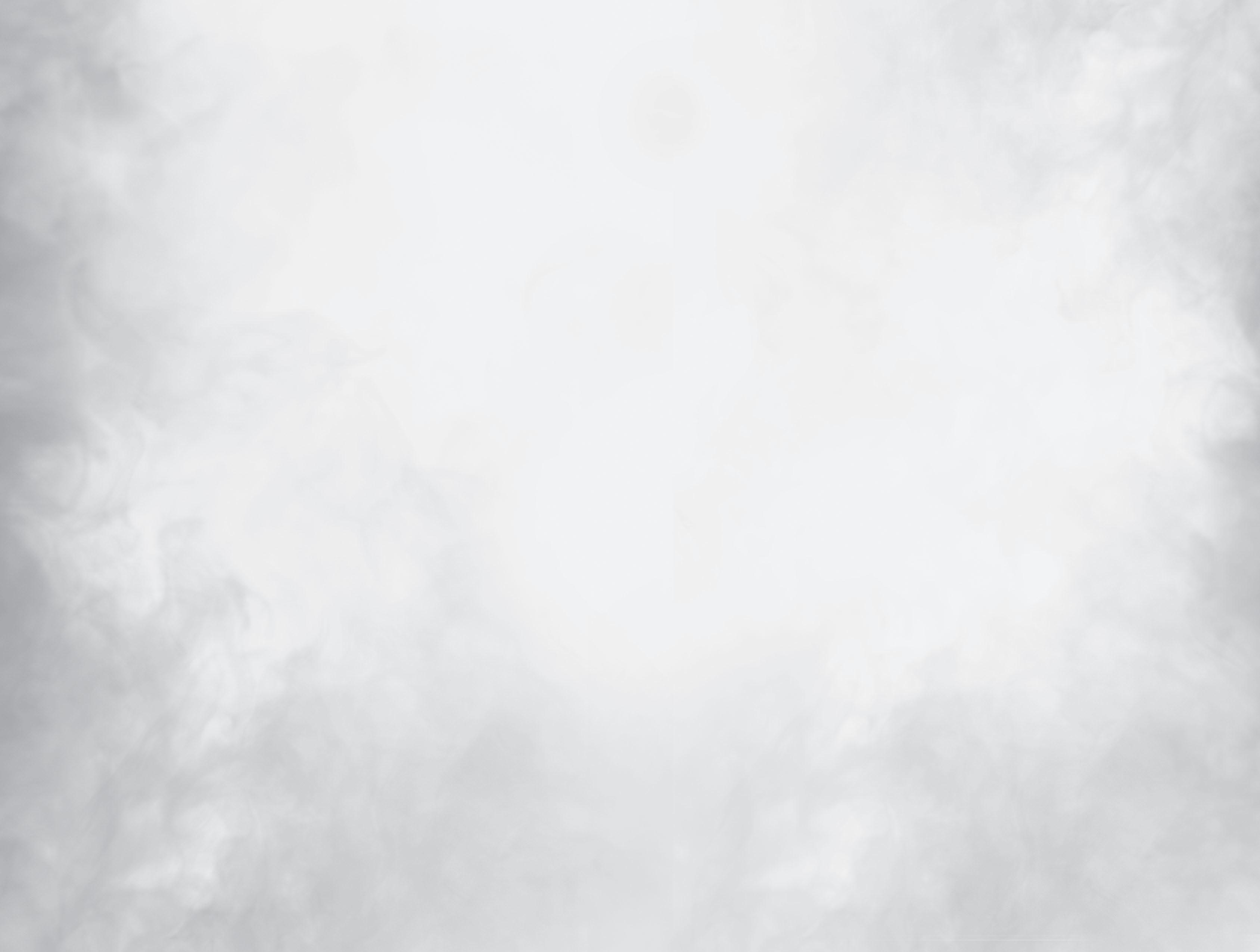
Also by Sloan Harlow
Everything We Never Said



















Also by Sloan Harlow
Everything We Never Said

PENGUIN BOOK S
UK | USA | Canada | Ireland | Australia India | New Zealand | South Africa
Penguin Books is part of the Penguin Random House group of companies whose addresses can be found at global.penguinrandomhouse.com
www.penguin.co.uk www.puffin.co.uk www.ladybird.co.uk

First published in the USA by G.P. Putnam’s Sons, an imprint of Penguin Random House LLC , and in Great Britain by Penguin Books 2025 001
Copyright © Alloy Entertainment LLC , 2025
Everything We Never Said excerpt copyright Alloy Entertainment LLC, 2024
The moral right of the author has been asserted
No part of this book may be used or reproduced in any manner for the purpose of training artificial intelligence technologies or systems. In accordance with Article 4(3) of the DSM Directive 2019/790, Penguin Random House expressly reserves this work from the text and data mining exception.
Designed by Cindy De la Cruz Text set in Adobe Garamond Pro and Proxima Nova
Printed and bound in Great Britain by Clays Ltd, Elcograf S.p.A.
The authorized representative in the EEA is Penguin Random House Ireland, Morrison Chambers, 32 Nassau Street, Dublin D02 YH 68
A CIP catalogue record for this book is available from the British Library
ISBN : 978–0–241–77255–3
All correspondence to: Penguin Books
Penguin Random House Children’s One Embassy Gardens, 8 Viaduct Gardens, London SW 11 7BW
Penguin Random Hous e is committed to a sustainable future for our business, our readers and our planet. is book is made from Forest Stewardship Council® certified paper.
For the ones who fell off the summit, looked up from the bottom, and started climbing again anyway.
Every Friday, my mom played the lottery. She would stop at the gas station on her way home from cleaning whatever mansion was on rotation that week and buy scratchers for the largest pot on offer. She would win, here and there. Small amounts— sometimes the cost of the ticket, sometimes a little more. Once, she even won a thousand dollars. More often than not, though, she’d come up empty, and she seemed truly surprised every time it happened. I think she really believed that one day, the odds would be in her favor. That one day, she would be a millionaire and magically her life would be better— all our lives would be better. The never-ending debt from her unfinished college degree would be gone just like that. The need for my dad to take on a second and sometimes even a third job would disappear overnight. I could attend college without a single thought about tuition.
We would be rich and happy, but we would be responsible, the
kind of family that wouldn’t be destroyed from within by its newfound wealth.
When I turned fi fteen and learned about the odds of winning the lottery—“one in three hundred million,” my stats teacher had intoned— I told my mom she’d be better off saving her money instead of wasting it on tickets each week. She’d just waggled her eyebrows and said, “Someone’s gotta win. Why not me?”
As far as I know, she never did win the lottery. But I did. And all it cost me was everything.
Cemeteries are the greenest places in all of Scottsdale, Arizona. Even greener than the golf course at the nicest country club in town, which I only know because my mom worked there as a housekeeper when I was seven, and her boss used to let me eat ice pops from the snack stand at the thirteenth hole.
Ocotillo Ridge Memorial Park is no exception. There’s no red dirt here, no gravel. No dusty scrub or faded mulch. Just a clear stretch of brilliant green grass, water shortage be damned. The sea of green is broken up only by headstones and a smattering of flowering trees that lace the air with the gumdrop smell of acacia and the grape-soda scent of Texas mountain laurel. Dad loved those pendulous purple flowers, that sweet smell. It’s why I dipped into my GoFundMe money—the dubiously earned nest egg I’d vowed never to touch except in case of emergency— to secure him a spot here, so he could always be near those blossoms.
It’s the trees I focus on now, the way they glow in the morning
light. I don’t focus on the way a priest is saying my father’s name—Jay San-TOS — and how it sounds all wrong on his clumsy tongue. The way substitute teachers used to say my name, indifferent, not bothering to understand the vowels or pronunciation, because in an hour, that name would no longer exist to them.
If I focused on how wrong it sounds, I would have to focus on how wrong all of this is. That my dad is lying there, in a cedar coffin, waiting to be lowered into the ground, instead of standing here by my side. That my mother hasn’t even called, let alone shown up for his funeral. That life as I knew it burned down to the ground just two weeks ago, when my house caught fire, taking everything with it—my guitar, my songbook, my diaries, my clothes, everything.
And most importantly, my father.
Because of the extensive damage, the fire department hasn’t been able to tell us exactly what happened, just that it was probably electrical. Everything in our house was so old and half-broken, it honestly could have been anything. And once the fire started, it blazed hot and fast; my dad didn’t even make it out of his bedroom. Everyone says it’s a miracle I survived. That I’m so “lucky” that I somehow made it out of the house to the front lawn, where the fi refighters found me passed out from smoke inhalation. I have no idea how I did it; all I have of that night are smoke-addled flashes, nothing that adds up to “daring escape.”
And personally? I wouldn’t call any of this “luck.”
Th rough the fog that has enveloped me ever since I awoke in the hospital, I notice just how many people are here. I recognize most of them. Gertie, the owner of the diner I’ve worked at for years, presses a tissue to her nose. Teachers from Scottsdale Senior High School, where I’m a senior, as well as staff and students from Mojave Prep, where my dad coached football, stare solemnly ahead. His assistant
coaches all stand in a line, wearing an impromptu uniform of slick jackets and ties; the players wear their varsity jackets despite the heat, their expressions grim.
Thank God Tawny’s here. My best friend in the entire world. And after everything that’s happened, sort of my only friend in the world. Everyone has been so kind and helpful, but Tawny McGill is the only person I can bear to be around. She’s also the last person alive, it feels like, who knows me inside and out, who knows what I need without me even having to say it.
My ex, Noah Pierce, is also here, though he has studiously avoided eye contact with me since he arrived with his father. It’s probably for the best, though, since Tawny would explode with protective fury if he got within five feet of me.
Next to the Pierces are a dozen guys from my dad’s regular Alcoholics Anonymous meeting, the “anonymous” part of the equation having long since fallen by the wayside after years of backyard barbecues or the occasional person coming up to us during our weekly breakfast at the diner to share that my dad had literally saved their life.
As I look into the sea of tear-streaked faces around me, at this crowd stitched together by my father’s love and support, I can’t help that little voice inside me that asks: But where is Dad?
It’s a familiar refrain from my life. Anytime I got up to sing, from my first concert at eight to my last one at seventeen, as I’d walk onto the stage, my heels echoing against old, scuffed wood, my first thought was always:
Where is Dad?
I would look out into the crowd, searching only for him. I’d find him: the mole on his left cheek; his thick, black hair; his dark, laughing eyes. He’d raise his hand, wave and wave. In that moment, I was a famous singer, a celebrity. I’d always wave back until Mom would
tug down his wrist, embarrassed but smiling as she tucked a strand of blond hair behind her ear.
Where is Dad? I think again. Knowing the answer breaks me.
As if noticing that I am about to fall to pieces, Tawny leans in and whispers in my ear, “I’ve got you, River.”
“We both do,” Tita Anna whispers from my other side, lacing her fingers through mine.
Tawny puts an arm around my shoulder, tucking me in tight. It’s the only reason I don’t fly apart. I stay there, in her embrace, through the rest of the ceremony, as the priest finishes his sermon, and then as person after person steps up to share their memories of my father, of the profound ways he touched their lives. Tawny stiffens next to me with each speech, turning herself to rock so I don’t break. She and Tita Anna do their best to form a barrier around me, but not even they can protect me from the end of the funeral, from the moment they lower the coffin—my dad —into the grave.
I’m not ready. I can’t. I turn my head and bury my face in Tita Anna’s black dress. Not yet.
As everyone fi les by us, murmuring rounds of I’m sorry, and he was such a great man, and I will miss him , I remain there, as still as the headstones surrounding us.
“We should go, love,” Tita Anna finally says, brushing my long, dark hair off my face. It feels like only seconds have passed, but a look at my watch tells me it’s almost noon, which means the ceremony ended an hour ago. Only Tita Anna, Tawny, and I remain, along with a cemetery worker who stands a respectful distance away, shovel in hand.
“Wait,” I say, suddenly frantic, searching for words to put to my impossible feelings. As much as it’s killing me to be here, the second I leave this cemetery, it will all become unbearably real. I cannot leave without my dad. I cannot leave him here by himself.
A hand fi nds my shoulder. Tita Anna. “He’s gonna be okay. We can come visit him whenever you want.”
“Can I get him a saguaro?” I ask, grasping at anything to hold on to for even one more second to make this moment less awful. There’s a little space to the right of the rectangular hole in the sandy earth, a spot for life in this place that holds so much death.
“Of course,” Tita Anna says, steering me gently toward the car. Tawny follows at my side, a comforting shadow.
While we’re walking toward the parking lot, someone’s phone buzzes and buzzes. I don’t realize it’s mine until Tawny nudges my handbag.
“Do you want to check that?” she asks me. “Or I could turn it off for you?”
“Oh.” I pull out my phone, which is riddled with notifications. I swipe away the litany of I’m sorry s and If there’s anything I can do s in my texts, about to turn the device off, when a new alert from GoFundMe pops up.
Part of me is still a little embarrassed that a corner of the internet knows my entire sob story, detail after detail laid bare for anyone to see. But I can’t deny how helpful the GoFundMe money has been. We were constantly behind on bills, and it turned out that our homeowners insurance had lapsed. Which meant that after the fi re, I had literally nothing to my name, no money to rebuild the house, nothing physical to resell, no safety net whatsoever. The second I voiced concern about paying my hospital bill, Tawny waved a hand impatiently.
“Don’t worry. It’s all taken care of.”
“But how?” I asked, bewildered.
She held up her phone, showing me the post she’d written on GoFundMe describing what had happened alongside a picture of me
and my dad at the Prickly Pear, a local music venue where I often sang at open mic night.
“You didn’t have to do that,” I protested, but she just shrugged.
“It’s literally the least I can do, given . . . well, everything.”
For nearly two weeks leading up to the funeral and for days after, my phone kept buzzing with notifications. A five-dollar donation here. Seventy-five dollars there. Someone even gave five hundred. Some of the donations were from names I recognized, others from people in faraway states who had read about what had happened, and some of the donations were simply anonymous. Slowly, the total figure had ticked up, fi rst into the hundreds, then the thousands, and fi nally, mind-bogglingly, into the tens of thousands. I was both blown away by everyone’s generosity and thoughtfulness, and sickened by the thought that I was profiting somehow on this horrible tragedy. When I said as much to Tawny, she just laughed and shook her head.
“Only you, River, could take something good and turn it sideways. It’s not your fault the healthcare system here is so expensive. Or that your parents didn’t have untold generational wealth. It’s not blood money—it’s a lifeline. Just take it and say thank you.”
So I did.
It takes a second now for the page to load, but when it does, I stop walking.
Tawny and Tita Anna don’t notice for a few steps. Then Tita Anna turns around and dashes to my side when she sees my face. “Are you okay? Did something happen?”
I can’t speak, so I hold up my phone and show her and Tawny the GoFundMe figure. Suddenly, those digits have many more zeros. Many, many more.
Because someone has just anonymously donated two million dollars.
I’msitting on a crate of fat, ripe oranges, huddled and shivering, squeezed between the towering shelves of produce in Gertie’s Diner’s walk-in cooler. My head leans against a cardboard box full of white onions as heavy and round as softballs. Through the small holes on the side, I can smell how fresh they are, how I’ll weep when I slice into them tomorrow during prep.
Ironic, as I’m trying— and failing—not to cry right now. It’s all because of my first table. It had been a family: a mom, dad, and little girl with long, black hair. “Th ree slices of carrot cake,” the dad had said. “I know it’s kind of early for it, but we always do cake for breakfast on her birthday.”
For one moment, the entire scene had shifted—for one moment, it had been me and my parents sitting there, ordering cake for breakfast like I’d done on every birthday for as long as I could remember. But just as quickly, the scene rearranged itself, and reality came
crashing back in. It wasn’t me and my parents sitting there— and it never would be again.
I’d barely kept it together before hefting open the heavy metal door and diving into the blissfully frigid air of the walk-in, where I’ve been hiding for ten very cold minutes.
Now I hear the walk-in door push open, the telltale flap of someone walking through the curtain of plastic strips. I can’t see the doorway from where I’m currently hidden amongst the towers of eggs and bricks of cheddar, but I know who it is.
I wipe my eyes and take a deep breath, trying to get a grip.
“Sorry, Tawn. I’m coming.”
But when I open my eyes, I give a startled exhale, my breath curling visibly in the cold air. Because I’m not looking up into the hazel gaze of my best friend. Instead, it’s Logan Evans, the last person I’d ever want to catch me crying in a walk-in.
“You,” I say, “are not Tawny.”
“No,” he says, “I am not.”
He crosses his muscular arms, tilting his head at me as the chiller compressor roars to life. A lock of thick, dark hair falls over his forehead, nearly touching his raised brow. His jaw is set tight, making his face look even more chiseled than normal.
There’s no denying it: Logan Evans is hot. He’s been here seven months, and his beauty still catches me off guard.
Tawny had nearly dropped her stack of plates the first time we’d seen Logan talking to Gertie about the help wanted sign on the front windows last year. “Who the hell is that ?” she’d said. “He looks like a prince Disney had to fi re for causing too many early sexual awakenings.”
But on his first day, I accidentally crashed into him with a tray full of Diet Cokes. I’d scrambled for a towel to mop at his soaked shirt,
stumbling over myself apologizing to him. But instead of accepting my help, he’d stepped back, as though my touch had burnt him. When I’d met his gaze, his expression had taken my breath away. There was an unmistakable fury etched into his features, like he hated me, even though he’d only known me for less than an hour.
After that, no matter how hard I tried to be friendly, he barely spoke to me, beyond what was necessary. “Can you refi ll the mayo?” was what passed for small talk between us.
“He knows he’s hot,” I’d complained to Tawny, watching him work a table with two giggling grandmas, hating the way my stupid heart hammered at the sight of his smile, hating how much I noticed him when he never noticed me. Hating the way I cared, even though I already had the perfect boyfriend. (I try not to linger on the “had.” I try not to linger on thoughts of him at all.) “He uses that face like a weapon.”
Now I wipe my eyes and turn to face Logan. “Sorry, just having a bad day.”
Logan sinks into a squat until we’re eye level, so close I can see flecks of yellow scattered in his bright blue irises. For one fleeting moment, I swear I see a fl icker of warmth there. He reaches out his hand, and all of a sudden, I stop breathing.
Is Logan Evans, who has barely ever said five full sentences to me, who rarely smiles or shows any emotion toward me whatsoever besides irritation, going to comfort me?
But instead of touching me, he stretches behind me, grabbing something wedged behind my back. The motion knocks me offbalance, and I have to put my hands out to catch myself.
“Gertie asked me to get more oranges. We’re out of juice.” His eyes kick back to mine. “You’re . . . sitting on our last carton.”
Perfect. Just perfect. Just when I’m hoping this scuffed metal floor will open and swallow me whole, the walk-in door bursts open again.
“I took care of them, got them carrot cake slices. Honey, I can’t imagine . . .” Tawny trails off, blinking down at Logan’s back as he silently gathers oranges.
When his arms are full, Logan rises and makes his way out from between the shelves, nearly dropping an orange as he takes great care to not brush against either of us. He doesn’t spare us a single glance.
Tawny’s nostrils flare. “I swear, he acts like we ran over his puppy. Would it kill him to be nice?” She gives my face a good look. “Seriously. Are you okay?”
I sniffle, and Tawny hugs me. It feels good to hug her back, to be surrounded by the coconut scent of her shampoo, the warmth of her body in this icy chiller.
I shake my head. “All good. Minus the whole sitting-on-Logan’soranges fiasco.”
Tawny rolls her eyes. “Oh, screw him. He should be so lucky to have you sitting on his oranges.”
When I’m ready, Tawny leads us back out to wipe down the stack of dirty menus at the front counter. I’m scrubbing a dubious stain on the dessert section when I notice the picture of Belgian waffles. Noah’s favorite. I feel a pinch in my heart, like I always do, at just the memory of his name.
Perfect, beautiful, heart-gouging Noah.
“Stop thinking about him.” Tawny cuts into my thoughts. That’s the problem with having Tawny as a best friend: She can read my mind.
“I wasn’t,” I lie.
“You sighed no less than three times this past minute.” Tawny tosses another wiped menu on the clean pile. “You really need better taste in men, Riv.”
“You’re one to talk, you know.” I raise a brow at her. “At least I didn’t carry a torch for the world’s douchiest prom king.”
“How dare you.” Tawny playfully smacks me with a plastic menu. “I didn’t carry a torch. It was more of a match. Besides, that was back when I was young and foolish.”
“That was five months ago,” I say, deadpan.
Tawny tosses her ponytail to brush playfully against my face. “Like I said. Young and foolish.”
I pick up another menu and pick at a dried piece of yolk on the corner. “You know, if you had just asked him out, he would have said yes.”
There’s no way he wouldn’t have. She’s gorgeous, with blond hair that she’s constantly dyeing different colors, hazel eyes, and a heartshaped face. Tawny’s not just beautiful; she’s charming in a way that sneaks under your skin and pulls you firmly into her orbit.
If there is one bit of luck in my life, she’s it, thanks to whatever scheduling god seated her next to me in Spanish class sophomore year. She was new that year, but somehow she ended up taking me under her wing, as if she were the one who’d been there all along. Other than Tita Anna, she’s the closest thing I have to family now.
“Please.” Tawny fl icks a dismissive hand in the air. “Matt’s old news, baby. I saw on Insta that he showed up to graduation completely blitzed, and when he walked, or should I say stumbled, across the stage, he tried to go to the podium to give a speech.”
“Whoa.” I blink. “What was his speech?”
“I think he just yelled, ‘Roll tide!’ over and over.” Tawny shrugs. “See? Bullet dodged.”
My laughter dies down, and I fall quiet. “Sorry you missed the live show. Sorry you missed the whole thing,” I say in a low voice. I can feel the painful pressure from earlier come back, rising in my chest.
I couldn’t stomach walking in graduation, not when neither of my parents would be in the audience watching me. In solidarity, Tawny had spent the day at the movie theater with me, hopping from one showing to the next, buying me popcorn and Sour Patch Kids, handing me tissue after tissue, all without ever making me feel like I was a mess.
“Hey. Hey.” Tawny gives me an earnest look, brows furrowed. “Don’t you dare apologize. My place is by your side. Always.” She reaches out, squeezes my arm.
“Besides, Mom wasn’t gonna be there anyway. Berlin , that time. They had her working ten days in a row.” She shrugs. “I can’t imagine . . . just flying nonstop across the ocean. Back and forth, back and forth. What an exercise in futility.”
Tawny’s mom is a flight attendant. A busy one. Constantly taking overtime and extra shifts to make life as a single mom work. She’s almost never home. It makes my heart ache for Tawny, though she tells me to save my pity for someone else. As far as she’s concerned, the arrangement works out just great. Minimal supervision means she can live her life how she wants to without constant fights. “I swear we love each other more because we see each other less,” she always says.
Well, used to say. She’s careful never to say anything like that around me these days.
Logan passes us, carrying a stack of menus, his blue eyes piercing. “You’ve got a table, Santos. Th ree waters and a Coke.”
“Oh,” I start. “Thanks, Logan. You didn’t have to . . .”
But he’s not even listening, his back already to me, and I hate myself just a little bit for registering the muscles moving beneath his T-shirt, the way his jeans fit perfectly.
Shaking myself out of it before Tawny can notice this too and chide me, I go take my table’s orders, apologizing profusely for keeping them waiting. They’re incredibly kind and end up leaving a
generous tip. I clutch the folded bills in my hand, my heart pumping faster. And I wonder, as I always do:
Was it them? Could they have been the anonymous donors?
It’s a game I find myself playing nearly every day. But every lead I’ve chased for the last six months has been a dead end. Ex-players of my dad’s who are now playing professionally. Members of his AA group. A secretly wealthy family member. I even checked with GoFundMe. No, no, no, and that goes against our policy.
“Not them,” Tawny singsongs as she sweeps by, watching me staring dazedly at my tip.
And there’s that pesky mind reading again. I quickly shove the bills in my pocket. “How do you know?”
She shrugs. “I mean, I don’t. But, Riv, we’ve been over this. Why does it even matter who gave it? Money is money.”
Part of me knows she’s right, but the bigger part of me can’t set aside the mystery. It feels like one more loose thread in my everunraveling life. And it feels different, somehow, from accepting the random twenty here and there. Two million dollars from one person? Who has that kind of money, and who would give it to me without expecting so much as a thank-you?
For the next hour, though, I’m blissfully busy and have no choice but to set that mystery aside. Tawny and I bob and weave around each other like figure skaters on a black-and-white-checkered floor. It’s a synchronicity that comes from waiting tables here at Gertie’s since I was fi fteen and my coworker being my very best friend.
“Table six needed more ketchup. I brought them a bottle,” Tawny says as she ducks under my tray full of iced teas.
“Saw that you got Mrs. Lewis. I dropped off her extra ranch,” I say, hanging the next ticket in the kitchen.
A few times, I swear I feel Logan watching me, but every time I
look up, he’s absorbed in an order or ringing up someone’s tab. Miracle of miracles, I don’t have any more embarrassing meltdowns in front of him, and by the time we’ve grabbed our bags from the lockers and clocked out, Tawny’s sufficiently cheered me up.
When we walk out the back door, we hear a low, raspy meow. A large, scruff y tabby cat rounds the corner, twitching a crooked tail.
“Tigery!” I gush, stooping to scratch behind his ears.
It’s taken patience and a lot of Gertie’s chicken, but the wary stray cat that’s lived behind the diner has finally let me love on him. Tigery’s been a huge comfort in the days since the fire. As soon as I get a place that allows pets, I’ll pamper him with feather beds and spoon-fed caviar like he’s a feeble princeling.
“You always sound like you’re reuniting with your long-lost husband after decades apart,” Tawny muses. “You saw him this morning.”
“Well, maybe a few hours is a decade in cat years. And I don’t know, Tawn. As far as husbands go . . . I feel like I could do a lot worse than Tigery.”
Tigery flops on the concrete and stretches out his paws.
“River,” Tawny says, “we are not in marrying-our-cat territory yet. Okay? And I don’t think it will ever come to that.” Tigery slaps his tail on the concrete, as if in agreement.
“Thank you both for the vote of confidence,” I say.
After another scratch or two, Tigery is sated and trots off into the shade. I stand, brushing dirt from my legs.
“Thanks for today,” I say, giving Tawny a hug. “Love you so much.”
“Duh,” she says, kissing my cheek. “Love you more.”
I walk back to my car, feeling good—happy even. But as soon as I slam the door shut, silence envelops me, an assassin I should have seen coming. The Arizona June heat is already choking me and making the side mirror sag, the duct tape holding it in place softening in
the sun. And with no Tawny, no murmur of customer voices, no ding of the diner door, it all comes back.
The thing that is always lurking, the thing that, for blissful short slivers of the day, I sometimes forget. It comes up right now, all of it, from the basement of my heart:
My mom is gone. My dad is dead. And my life will never be the same.
Icansmell the stench of burnt food as soon as I open the front door.
The sour-black smell cuts through the fog that surrounded me for the entire drive home, and for a second, I’m back in that night. In the billowing flames and black smoke pouring out the windows. I’m back where I can’t breathe, can’t see . . .
No.
I slam the door on the memory, digging my nails into my palms as I drag myself back to the present.
“Hey!” Tita Anna calls from the kitchen. “In here!”
Once my pulse steadies, I hang my bag on the hook by the front door and peek my head into the kitchen. Tita Anna is stooping in front of the oven, peering through the window.
“It’s almost ready,” she says.
“I think it was ready forty minutes ago,” I say, pasting a smile on my face.
Her face falls flat. “Oh God. Does it smell burnt?”
I purse my lips.
“Ughh, okay, so the sad part is I was actually trying here.” She shakes her fists at the ceiling. “Curse you, Super Mommy’s Kitchen! Maybe if her recipe blog were more recipe and less ranting about her marriage . . .”
I grab oven mitts and flip on the fan above the stove.
“Stand by.” She winces, pulling the oven door open.
I snatch out the casserole dish, and Tita Anna shuts the door before too much smoke can billow out.
We stare at the black goo in the tray.
“What . . . was it?” I poke it, and black crust breaks away.
“It was supposed to be chicken potpie casserole.” She pushes up her glasses, shaking her head. “Man. Jay was always the one who could . . .” She clears her throat. After a moment, she straightens, adjusting her T-shirt. “Wanna go out? My treat?”
The exhaust fan roars on high. But the air is still charred, the smell making my heart race.
“Sure,” I say. Because in this moment, truly anywhere is better than here.
I love Tita Anna. She’s a lot younger than my dad, still in her thirties, and ever since I was a kid, she’s always had me rolling with laughter. She’s technically my dad’s cousin, once removed, but she came from a family of four sisters, moved out of her house the second she could, and always called my dad the brother she never had.
She works remotely as a project manager for a tech company, and she is as irreverent as they come. Right now, as we’re eating at an Italian restaurant, she’s telling me that for her new Zoom background,
she recorded a video of herself walking into her home office, acting surprised someone’s on a video call, and backing out of the room.
“What?” I shake my head, twirling my linguine. “Explain that to me again?”
“Okay, okay.” She tosses back her long, black hair and sits forward in her chair. “So, when I set that video as my Zoom background, it looks like I’m just sitting in my bedroom, right? I’m in the video, actually me, and then when that recorded video plays, it shows me walking in, looking surprised at interrupting myself on a Zoom call, apologizing, and leaving.” She snort-laughs, stabbing a ravioli.
“Don’t choke,” I say as she pops it into her mouth, still laughing.
“I won’t,” she assures me. “Anyway. No one’s said anything. Not once. Not the client. Not my boss. I think they’re afraid to. Like they think it’s my sister or just another random Filipino woman in my house, and if they ask if that’s me, they’ll sound racist. Ugh, I’d love that. Except, I worry if I play that card, they’ll expect me to speak Tagalog.”
I shake my head, smiling down at my nearly empty plate. The waiter comes and refi lls our water, asks if I’m done. Tita Anna asks for a box and the dessert menu.
“So,” she says, peering at me over a picture of a slice of limoncello cake.
“So,” I echo, smiling tentatively.
Tita Anna sets down the dessert menu and scratches her chin, contemplating the ceiling.
“Our apartment sucks, doesn’t it?” she blurts out after a minute.
I laugh, surprised. After The Accident, Tita Anna insisted I move in with her. It’s been wonderful living with her. But the apartment itself? I would never dare say anything because Tita Anna’s been so gracious. But the walls are so thin, I can hear exactly which YouTube
videos our neighbors are watching. I can hear the click of their keyboard. There’s a hole in the bathroom that leaks anytime the upstairs neighbor takes a shower. And worst of all?
No pets allowed, so no Tigery.
Even so, it’s a small price to pay to live with Tita Anna.
And the fact that I could easily afford something better for both of us— could buy us a place if I wanted—is something that Tita Anna never, ever makes me feel guilty about. She knows that I don’t want to touch the GoFundMe money, to turn the worst thing that ever happened to me into something that can be fi xed with dollars. Especially when I don’t have any idea where the money came from in the first place.
Which is why I say, “Honestly? Any apartment is the best apartment if it’s with you.”
“Oh, Rivvy.” Tita Anna reaches across the table and squeezes my fingers. “I don’t deserve you. And of course I agree.” She leans closer. “But we can go anywhere. Be anywhere. As long as there’s Wi-Fi, I can do my job.” She leans forward, eager. “River, we could live in Rome. Rome. Just think: handmade pasta every night. Real limoncello. Wine from a vineyard that’s only a short train ride away.”
My heart cracks open. When Tita Anna sees my face, her eyes are shiny and sad.
We’re both thinking about my dad.
He was constantly adding things to his bucket list. Most of them were silly. Play a chess game with the Pope. Be a guest star on an episode of Law & Order. Befriend a wild javelina and train it to follow him around like a familiar.
But there was one item that was real: a trip to Italy.
It was how he was going to celebrate twenty-five years of sobriety. We would start in Rome, because he had wanted to toss a coin over
his left shoulder into the Trevi Fountain, then head to Florence and then Venice. He planned on eating three gelatos a day and feeding the pigeons in St. Mark’s Square. When I told him it was now illegal, he insisted it was worth it to pay the fine.
Needless to say, he never made it there.
Tears spring to my eyes. Quickly, I brush them away.
“I . . . yeah. Yeah, maybe not. I wasn’t thinking . . .” Tita Anna shakes her head. “But there are other places. California?” Her smile is small. Hopeful. “New York? The Great Smoky Mountains? Anyplace where if you leave cookie dough in your car in July, it doesn’t bake into a black crisp? Or a place where there’s no such thing as ‘scorpion season’?”
There’s a moment where I imagine it. New York, a place with actual seasons. Midnight runs to the bodega with Tita Anna for a pint of Ben & Jerry’s. The countless bars with open mics every day of the week. Tita Anna chiding me for riding the subway late at night. It sounds wonderful.
But it’s not possible. I can’t leave. My life is nothing more than glass shards scattered amongst the saguaros in the Sonoran Desert, each piece a burning question. For me to keep going, I need to gather them all, fit the pieces together, see how it all makes sense. I need answers. And the answers will never be anywhere else but right here.
“I can’t leave.” I sigh. Tita Anna nods as if she knew this would be my answer all along.
“Is this about your mom?”
“Amongst other things,” I say, thinking of Tawny, of the diner, of Tigery. “But, yeah. I mean, what if she comes back, and . . . and I’m not here?”
Tita Anna’s face twists, but she doesn’t say anything. She doesn’t have to. I know what she’s thinking. It’s the same thing Tawny thinks, the same thing the police thought.
Why hold on to someone who didn’t hold on to you?
My mother was the type of mom who read me stories every night, perfectly voicing every character, from Chester the cricket to Gandalf the wizard to Miss Honey from Matilda. The type of mom who threw her whole head back in laughter at my stories. The type of mom who kissed my dad when she thought I wasn’t looking, who still celebrated not just their wedding anniversary, but the anniversary of their first date.
But my mom was also the type who struggled. I never had a name for the way her moods could swing from one extreme to the next. How she could be so resplendently happy sometimes and barely make it out of bed others. She called them her Blue Days, and the only thing that ever seemed to help was hiking. When she was doing well, she’d pull out all her trail maps and point at the blue veins of rivers and red arteries of roads, showing me all the routes she’d already taken, all the ones she still planned to take. When she wasn’t doing well, she’d grab her backpack and go, often without even saying goodbye.
She was an old-school hiker, my mom. She never brought a phone. All she ever needed was the same pack she’s had since she was a teenager, a compass, and a tune to whistle.
“I didn’t even have a phone when I first started,” she said once. “I used to send letters. I wasn’t beholden to anyone. All I had to do was send a postcard every three weeks.” To who? I used to wonder. Both her parents were dead.
Once I came along, the cards were for me. Whenever she was gone longer than a week, she’d come back with a stack of letters, wanting to watch my face as I read her words. “It makes me feel like you’re there with me,” she always said.
So take me with you, I’d longed to say, but I never could bring myself to, fearing that my presence would change whatever magic healed her on her trips.
Not long after my eighteenth birthday, Mom started getting bad again. Leaving the house without telling us where she was going. Breaking down into sobs if the dryer left her clothes damp after a full cycle. Sleeping in until four p.m.
When we woke up one morning in early October, I wasn’t surprised to find her gone.
“Her hiking gear’s missing.” Dad had stared into the closet before he deflated with a sigh. “I suppose it was just a matter of time.”
“She’ll be better when she gets back,” I said with more certainty than I felt.
When Mom wasn’t back for Halloween, I felt my first flash of fear. Then Mom missed Th anksgiving. But when she missed Christmas, my dad called the police. He’d sat me down afterward and said, “Riv, I think we have to prepare for the fact that your mom might not . . .” His eyes shone with unshed tears. “Th at she might have left us for good this time.”
I refused to believe it. Because no matter my mom’s mood, one thing never changed: how much she loved me. I knew, in a way I felt so deeply but couldn’t explain, she’d come back one day.
That maybe she already had.
A week after the funeral, someone left a bouquet of bluebells, my dad’s favorites, at Tita Anna’s doorstep. There was no note, but I knew they could only be from her. I couldn’t bear to watch them wither, so I hung them upside down to dry. They now sit on my dresser in a Ball jar, so fragile that one touch and they’ll crumble to nothing.
Tita Anna reaches out and takes my hand in hers. “In that case,” she says, “maybe we should take a trip. Get out of here and give you a break from . . . everything, but with a return date.”
I stare down uncertainly at the crumbs on my plate and picture my dad throwing them to a horde of pigeons.